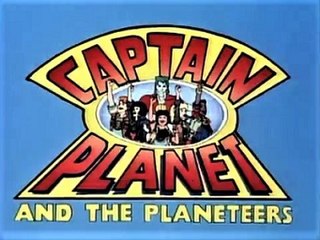
The alien invasion or space invasion is a common feature in science fiction stories and film, in which extraterrestrials invade the Earth either to exterminate and supplant human life, enslave it under an intense state, harvest people for food, steal the planet's resources, or destroy the planet altogether.

Science fiction film is a genre that uses speculative, fictional science-based depictions of phenomena that are not fully accepted by mainstream science, such as extraterrestrial lifeforms, alien worlds, extrasensory perception and time travel, along with futuristic elements such as spacecraft, robots, cyborgs, interstellar travel or other technologies. Science fiction films have often been used to focus on political or social issues, and to explore philosophical issues like the human condition. In many cases, tropes derived from written science fiction may be used by filmmakers ignorant of or at best indifferent to the standards of scientific plausibility and plot logic to which written science fiction is traditionally held.

Gordon Rupert Dickson was a Canadian-American science fiction writer. He was inducted into the Science Fiction and Fantasy Hall of Fame in 2000.

Robert Silverberg is an American author and editor, best known for writing science fiction. He is a multiple winner of both Hugo and Nebula Awards, a member of the Science Fiction and Fantasy Hall of Fame, and a Grand Master of SF. He has attended every Hugo Awards ceremony since the inaugural event in 1953.

Michael Connell Biehn is an American actor, primarily known for his military roles in science fiction films directed by James Cameron; as Sgt. Kyle Reese in The Terminator (1984), Cpl. Dwayne Hicks in Aliens (1986) and Lt. Coffey in The Abyss (1989). His other films include The Fan (1981), Navy SEALs (1990), Tombstone (1993), The Rock (1996), Megiddo: The Omega Code 2 (2001) and Planet Terror (2007). On television, he has appeared in Hill Street Blues (1984) and Adventure Inc. (2002-03). Biehn received a Best Actor Saturn Award nomination for Aliens, and received The Life Career Award at the 2011 ceremony.

Planetary romance is a subgenre of science fiction or science fantasy in which the bulk of the action consists of adventures on one or more exotic alien planets, characterized by distinctive physical and cultural backgrounds. Some planetary romances take place against the background of a future culture where travel between worlds by spaceship is commonplace; others, particularly the earliest examples of the genre, do not, and invoke flying carpets, astral projection, or other methods of getting between planets. In either case, it is the planetside adventures which are the focus of the story, not the mode of travel.

First contact is a common science fiction theme about the first meeting between humans and extraterrestrial life, or of any sentient race's first encounter with another one, given they are from different planets or natural satellites.
Science-fiction opera is a subgenre of science fiction. It refers to operas whose subject-matter fits in the science fiction genre. Like science-fiction literature, science-fiction operas may be set in the future and involve spaceflight or alien invasion. Other science-fiction operas focus on a dystopian view of the future. Like Lorin Maazel's opera 1984, they may be based on a previously written science fiction book.
Gothic science fiction, also known as space goth, is a subgenre of science fiction that involves gothic conventions. By definition, the subgenre attempts to capture the dark atmosphere of gothic fiction while also incorporating elements of science fiction.
Thomas L. Sherred was an American science fiction writer.

The Body Snatchers is a 1955 science fiction novel by American writer Jack Finney, originally serialized in Colliers Magazine in 1954, which describes real-life Mill Valley, California being invaded by seeds that have drifted to Earth from space. The seeds, grown from plantlike pods, replace sleeping people with perfect physical duplicates with all the same knowledge, memories, scars, etc. but are incapable of human emotion or feeling. The human victims disappear forever.

Several of Saturn's natural satellites have figured prominently in works of science fiction.

The Brain from Planet Arous is a 1957 American black-and-white science fiction film, produced by Jacques R. Marquette, directed by Nathan H. Juran, that stars John Agar, Joyce Meadows, and Robert Fuller. Distributed briefly by Howco International in late 1957, the film appeared in 1958 on a double feature with Teenage Monster.

The Man from Planet X is a 1951 independently made American black-and-white science fiction horror film, produced by Jack Pollexfen and Aubrey Wisberg, directed by Edgar G. Ulmer, that stars Robert Clarke, Margaret Field, and William Schallert. The film was distributed by United Artists.

War of the Worlds 2: The Next Wave is a 2008 direct-to-DVD science fiction film directed by and starring C. Thomas Howell. The film was produced and distributed independently by The Asylum.

Planet of the Apes is an American science fiction media franchise consisting of films, books, television series, comics, and other media about a world in which humans and intelligent apes clash for control. The franchise is based on French author Pierre Boulle's 1963 novel La Planète des singes, translated into English as Planet of the Apes or Monkey Planet. Its 1968 film adaptation, Planet of the Apes, was a critical and commercial hit, initiating a series of sequels, tie-ins, and derivative works. Arthur P. Jacobs produced the first five Apes films through APJAC Productions for distributor 20th Century Fox; since his death in 1973, Fox has controlled the franchise.
The American Anthropological Association defines anthropology as "the study of humans, past and present. To understand the full sweep and complexity of cultures across all of human history, anthropology draws upon knowledge from the social and biological sciences as well as the humanities and physical sciences." However, Samuel Gerald Collins of the Department of Sociology, Anthropology and Criminal Justice, Towson University, writing in the journal Science Fiction Studies has pointed out that:
In 1978, Margaret Mead, empathizing with the concerns of the 60s' counterculture, pointed to a grave deficiency in the science of anthropology: "Anthropology has to date made very meager contributions to man's developing concern with the future". Two decades later, the American Anthropological Association began awarding an annual prize for "Anticipatory Anthropology" in order to ameliorate this shortcoming, what Robert Textor called the discipline's "tempocentrism" – i.e., its concern only "with the past, the ethnographic present, and the actual present."
Drach is a surname. Notable people with the surname include:













